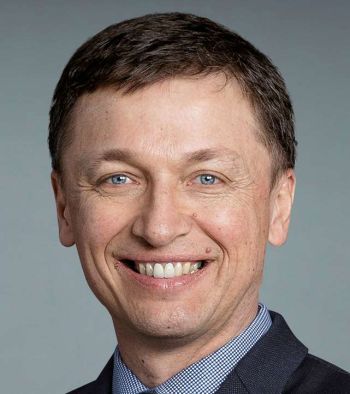Session Description: Why Do They Call it a Learning Curve? How to Use the Non-linearity of Learning to
Improve Your Education Programs and Research
Ever wonder why they call it Learning Curve? In this session we will explore how learning works at a fundamental level that applies widely throughout health professions education. The elements of a prototypical learning curve, including the latent phase, inflection points and asymptote, are described as they relate to competency development. We will discuss the implications of this evident non-linearity of learning in terms of effective instructional design all along the continuum. In particular, we will describe how competency standards intersect with the non-linear learning curve in that small changes in the competency standard may result in
disproportionately large changes in the learning effort required. Further, the specific learning curves of individuals can vary tremendously, a reflection of the constructivist nature of skill development. A key challenge for HPE is how this inter-individual variability is managed; learning curves make the challenge manifest in an actionable manner. In summary, the explanatory depth of learning curve theory can benefit both learners and instructional designers as they develop evidence-based educational and training programs.
Learning Objectives:
By the end of the session the participant will be able to:
- Describe the key elements of the learning curve theory
- Relate each element of a learning curve to the underlying learning processes
- List the implications of learning curve theory for educational practice.
Presenter: Martin V. Pusic, MD, PhD, ABMS Director, Research and Education Foundation
Dr. Pusic is an Associate Professor of Pediatrics and Emergency Medicine at the Harvard Medical School, a practicing Pediatric Emergency Medicine physician at the Boston Children’s Hospital, and a Scholar in Residence at the Brigham Education Institute. He recently became Director of the Research and Education Foundation at the American Board of Medical Specialties where he encourages scholarly approaches to certification of medical expertise.
He is also a core faculty member of the Harvard Macy Institute where he teaches on the intersection of educational technology and Health Professions Education. He is a scholar in the field of medical expertise with his research focusing on the collection and analysis of learning analytic data to nurture and certify expertise development across healthcare specialties.
Dr. Pusic obtained his medical degree from the University of British Columbia, a fellowship in pediatric emergency medicine at McGill, and his Masters (Informatics) and PhD (Human Cognition) from Columbia University. He is a Past President of the Society of Directors of Research in Medical Education, Chair of the American Heart Association’s Education Science & Programs Subcommittee, and has been Co-Chair of the Royal College of Physicians and Surgeons of Canada Medical Education Research Grant Committee.
https://twitter.com/mpusic
https://scholar.google.com/citations?user=ZrDK-tkAAAAJ
https://www.linkedin.com/in/martin-pusic-082b1a6/
Martin Pusic | Harvard Catalyst Profiles | Harvard Catalyst
